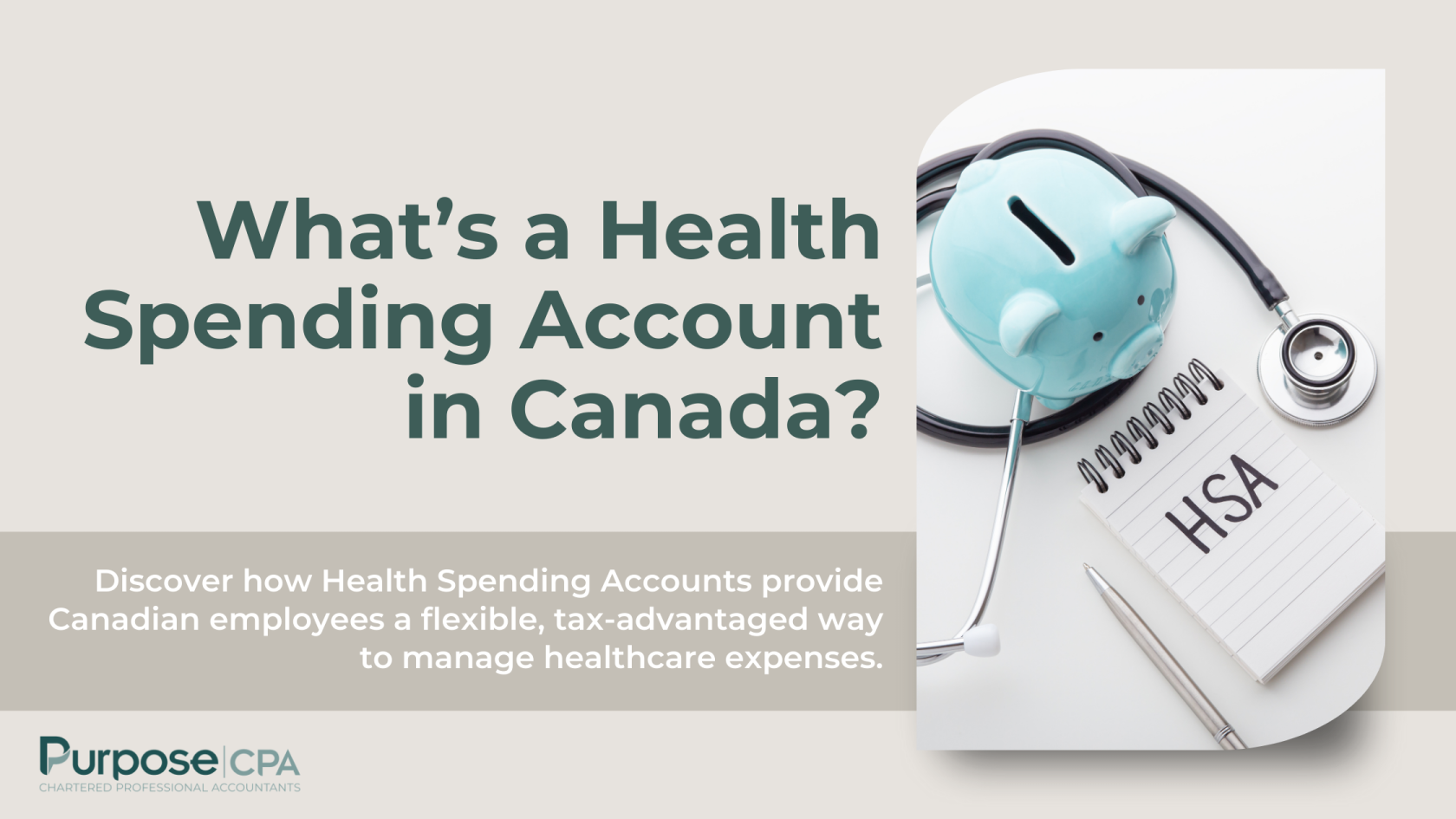Navigating health benefits can be complex, but a Health Spending Account (HSA) offers a flexible and tax-advantaged way for Canadian employees to manage their medical expenses. It allows employees to allocate pre-tax dollars towards eligible health-related expenses, potentially reducing their tax liability and increasing their control over healthcare spending.
Who is it for?
- Small businesses
- Entrepreneurs
- HR professionals
- Employees interested in alternative health benefits
Keep reading if you are…
- Exploring strategic tax planning and health spending optimizations
- Aiming to enhance employee retention through competitive health benefits
- Interested in reducing taxable income through medical expenses
- Seeking flexibility in managing health-related expenditures
- Looking for comprehensive information on HSAs
Why does this matter to me? HSAs can significantly affect your financial planning and health care management by offering tax advantages and flexible options for a range of medical expenses not covered by traditional insurance plans.
TLDR:
Health Spending Accounts in Canada let you set aside pre-tax dollars for medical costs, lowering your tax bill while giving you freedom in your health care choices. Whether you’re an employer considering offering HSAs or an employee thinking about your benefits, understanding HSAs is crucial.
What’s a health spending account in Canada?
A Health Spending Account (HSA) is a type of benefit plan offered by employers in Canada that allows employees to set aside pre-tax dollars to pay for eligible medical expenses. These expenses can include things like prescription drugs, dental care, vision care, and other health-related expenses that are not covered by a traditional insurance plan.
Here are some key features of a Health Spending Account in Canada:
- Employee-funded: HSAs are typically funded by employees through payroll deductions. Employers may also contribute to the account, but this is not required.
- Tax-advantaged: Contributions to an HSA are made with pre-tax dollars, which can reduce the employee’s overall tax liability.
- Flexible: HSAs are flexible and allow employees to choose how to spend their funds on eligible medical expenses.
- Unused funds: Any unused funds in the HSA can be carried over to the next year and can be used to pay for future medical expenses.
- Eligible expenses: The Canada Revenue Agency (CRA) has a list of eligible medical expenses that can be covered by an HSA. These include things like prescription drugs, dental care, and vision care.
- Administered: Health Spending Accounts are usually administered by a third-party administrator (TPA) who manages the account and ensures that expenses are eligible under CRA guidelines.
- Limit: The contributions to an HSA are limited by the government of Canada, and these limits change every year.
An HSA can be a good option for employees who have high medical expenses or who want more control over how their health benefits are spent. However, it’s important to note that an HSA may not be the best option for everyone, and employees should carefully consider their individual needs before choosing to enrolling in an HSA.
Understanding Health Spending Accounts is crucial for making informed decisions about your healthcare benefits. If you’re considering enrolling in an HSA or offering one to your employees, we provide guidance to help you navigate the options and maximize your healthcare spending effectively. For further insights into how HSAs can fit your needs, reach out to us today and take control of your health expenses!




